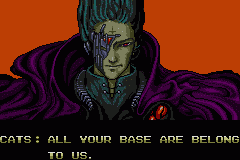Yahoo! officially announced the closing of their web hosting service, GeoCities, on October, the 26th, 2009.
It is like attending a funeral service for a nasty, despicable relative… everyone – yourself included – hated the bastard, but you can’t help but feel a draft of nostalgia and sadness. There are few non-technically inclined Internet users who have not had at least one page set up within one of the service’s many “neighbourhoods” back in the day. During those “Wild-Wild-West” days of the World Wide Web, GeoCities was the system that gave every user the chance to become a web developer, providing anyone with a functional, albeit horrendous personal or professional website.
Of course, in today’s Web 2.0 world, GeoCities has become something of an inside joke for web developers and few people would even think about actually crafting a webpage through the system, so Yahoo! – who had acquired the platform back in 1999, four years after its inception – had little choice but to shut the service down for good, a move that had been announced in early April. The closure leaves current GeoCities site owners with an upgrade option, allowing them to move their free GeoCities website to the Yahoo! Web Hosting platform. Care to speculate on the number of users who will actually take Yahoo! up on this offer? My guess would be somewhere around 50, two of which will most likely be David Bohnett and John Rezner, founders of the original BHI company, in 1995.
Although GeoCities is widely speculated to have been an unprofitable business venture for Yahoo!, it has empowered and inspired people’s self-expression online, an attitude that has shaped the way we use the Internet and has spanned many relevant aspects of today’s World Wide Web, including blogs and social networks.
So as we bid a final farewell to an old friend and look towards the future, we must never forget that we may well owe Wordpress, Facebook and Twitter to the much-criticized GeoCities.

![[Ask]](https://seo-wolf.com/wp-content/plugins/bookmarkify/ask.png)
![[del.icio.us]](https://seo-wolf.com/wp-content/plugins/bookmarkify/delicious.png)
![[Digg]](https://seo-wolf.com/wp-content/plugins/bookmarkify/digg.png)
![[Facebook]](https://seo-wolf.com/wp-content/plugins/bookmarkify/facebook.png)
![[Google]](https://seo-wolf.com/wp-content/plugins/bookmarkify/google.png)
![[LinkedIn]](https://seo-wolf.com/wp-content/plugins/bookmarkify/linkedin.png)
![[Mister Wong]](https://seo-wolf.com/wp-content/plugins/bookmarkify/misterwong.png)
![[Reddit]](https://seo-wolf.com/wp-content/plugins/bookmarkify/reddit.png)
![[Squidoo]](https://seo-wolf.com/wp-content/plugins/bookmarkify/squidoo.png)
![[StumbleUpon]](https://seo-wolf.com/wp-content/plugins/bookmarkify/stumbleupon.png)
![[Twitter]](https://seo-wolf.com/wp-content/plugins/bookmarkify/twitter.png)
![[Yahoo!]](https://seo-wolf.com/wp-content/plugins/bookmarkify/yahoo.png)
![[Email]](https://seo-wolf.com/wp-content/plugins/bookmarkify/email.png)

